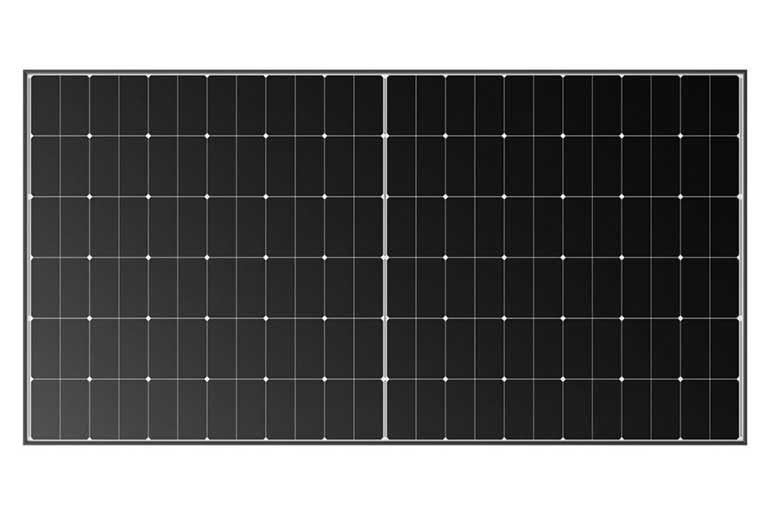Longi, the Chinese module manufacturer, declared its new bifacial n-type HJT solar module with back-contact architecture design at the Smarter-E trade show in Munich, Germany.
Longi Hi-Mo S10 panels generate power between 490 W and 510 W while delivering 240.1 W/m² to 249.9 W/m² power density per square meter.
The 54-cell module exists in five versions having temperature coefficients of -0.24%/C and power conversion efficiency between 24.0% and 25.0%.
The black anodized aluminum alloy frame supports this product, which measures 1,800 mm × 1,134 mm × 30mm while weighing 23.5 kg with semi-tempered glass applications at thicknesses of 2.0mm and 1.6mm.
The product warranty covers power output over three decades, during which the system must maintain at least 88.85% strength relative to its nominal capacity. Operators rate module degradation at 1% over their first year of service, whereas linear degradation follows a yearly rate of 0.35%.
“This is the first time that heterojunction back contact technology has been successfully implemented in a commercialized module. The Hi-MO S10 delivers a world-leading cell efficiency of 27.6% and a module efficiency of up to 25.2%, setting a new benchmark for performance in the photovoltaic industry.”
“The full-back contact one-line welding structure reduces cell edge stress, improving the module’s anti-cracking performance. Furthermore, the wafer is 10 μm thicker than mainstream options, providing enhanced reliability and longevity. The module also features bipolar passivation technology on its rear side, lowering hotspot temperature by 38.75% compared to conventional TOPCon cells, significantly reducing the likelihood of thermal events that could lead to fires.”
“Designed for durability, it has a load capacity of 6000/3600 Pa. As a result, the module can withstand very high snow loads, equivalent to 4 m of snow pressure, as well as heavy storms, equivalent to a category 15 hurricane. Its Class A fire rating guarantees the highest safety standards.”
– Longi
Several key components of the product incorporate TaiRay’s 182 mm n-type wafers, which represent an important innovation in silicon technology. Manufacturers claim these wafers lead to enhanced resistance consistency and better mechanical strength while reducing metal impurities.



